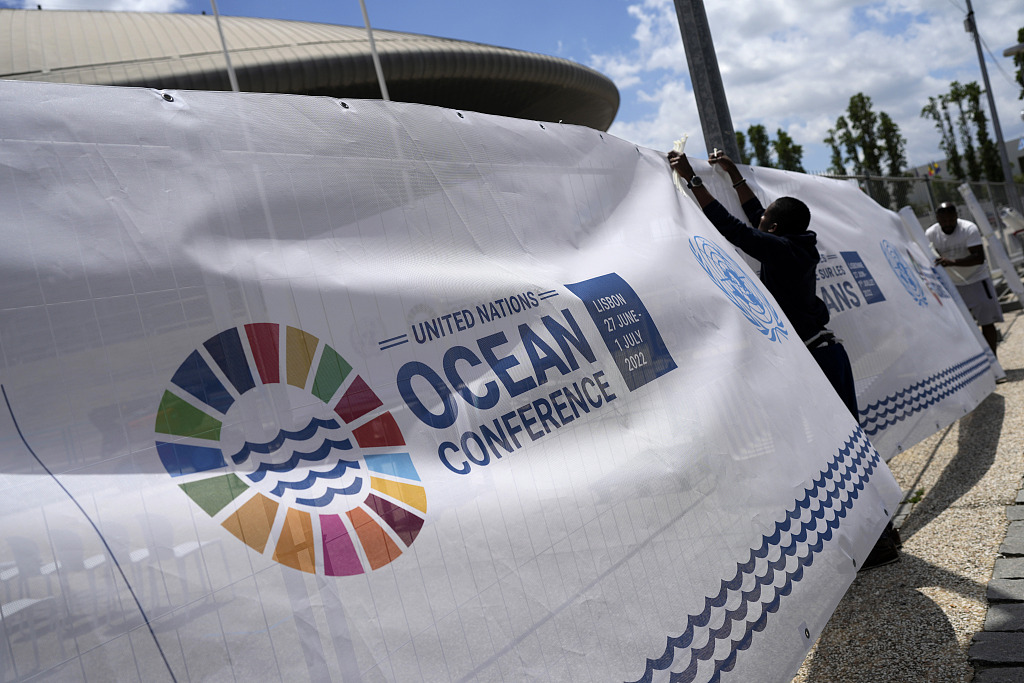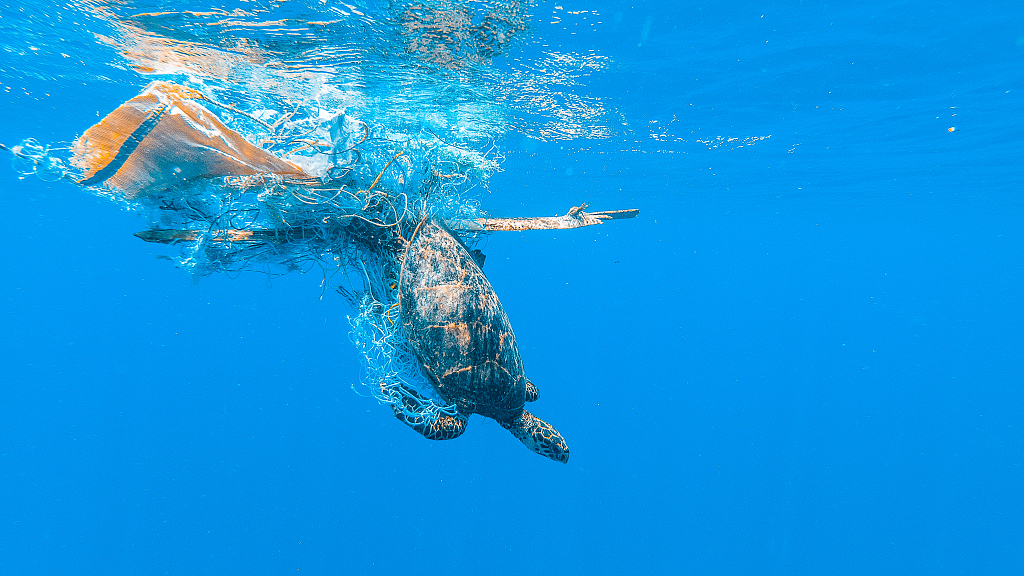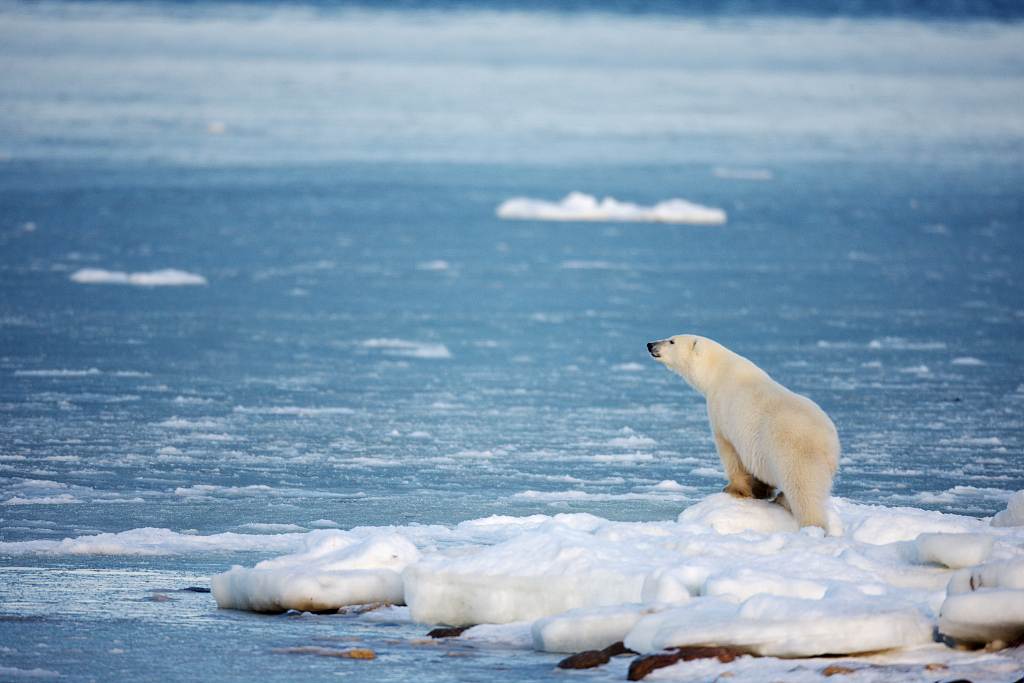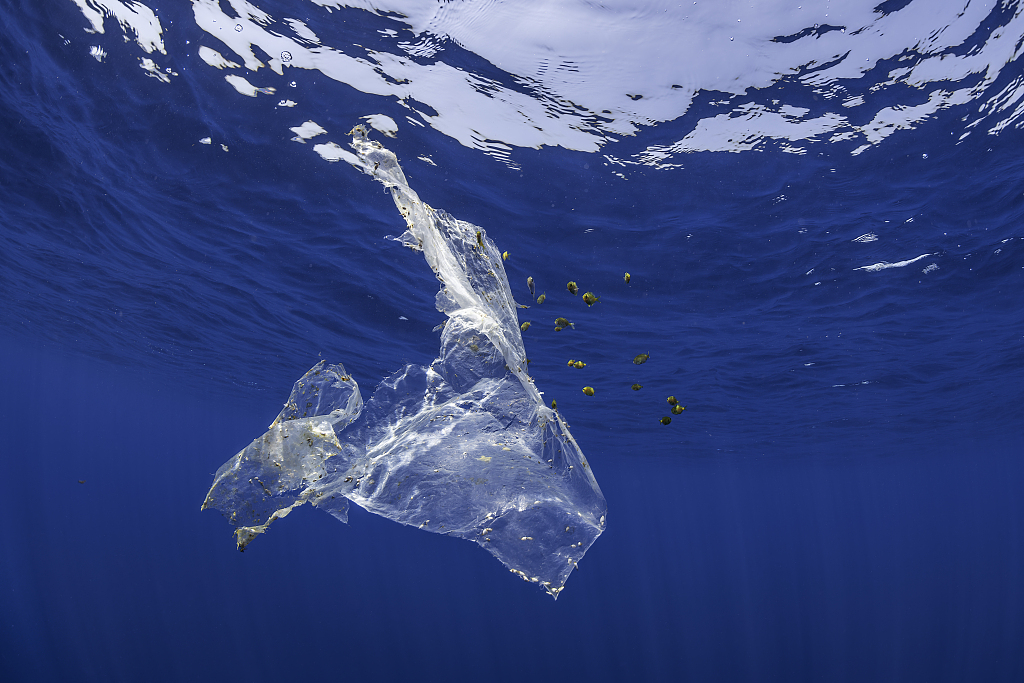Twenty-one new governments announced they will join the New Plastics Economy Global Commitment at the UN Ocean Conference on June 27, further boosting the leadership on tackling plastic pollution.
Established in 2018 and led by the Ellen MacArthur Foundation in collaboration with the United Nations Environment Programme (UNEP), the Global Commitment has united more than 500 signatories including businesses, governments and other organizations to drive the transition towards a circular economy for plastic, where plastic never becomes waste.

The UN holds its Oceans Conference in Lisbon, Portugal, June 27-July 1. /VCG
The UN holds its Oceans Conference in Lisbon, Portugal, June 27-July 1. /VCG
Plastic is everywhere in our lives, but after we use it, it ends up in the ocean. At least 11 million tonnes of plastic waste end up in the ocean every year, according to the UN, making up 80 percent of all marine debris.
Plastic pollution can have a serious impact on the entire marine ecosystem. Plastic entangles animals and is ingested by marine species. More than 800 marine and coastal species are affected by this pollution, according to the UN. Plastic waste kills up to 1 million sea birds, 100,000 sea mammals, marine turtles and countless fish each year.

A turtle entangled in plastic products. /VCG
A turtle entangled in plastic products. /VCG
Switching from virgin plastic to recycled plastic is one of the most effective ways to reduce plastic pollution. However, less than 10 percent of the plastic used around the world is recycled, said the Organization for Economic Co-operation and Development on February 22.
Instead of recycling plastic, more greenhouse gases are emitted each time virgin plastic or single-use plastic is produced, used and disposed. According to projections by UNEP, by 2050, greenhouse gas emissions associated with plastic production, use and disposal, would account for 15 percent of allowed emissions, under the goal of limiting global warming to 1.5 degrees Celsius.
As greenhouse gas emissions increase, the planet will become hotter, and the oceans will also be seriously affected, by phenomena such as sea level rise and ocean temperature rise.

As glaciers melt and sea levels rise, animals are losing their homes. /VCG
As glaciers melt and sea levels rise, animals are losing their homes. /VCG
Plastic pollution is one of the major global environmental problems, which brings great challenges to global sustainable development. It is estimated that the annual amount of plastic waste flowing into the ocean could triple by 2040, according to the UN.
Many countries have issued a number of plastic pollution control policies, and more and more of them have passed some sort of full or partial ban on plastic bags.
India imposed a ban on single-use plastics on items ranging from straws to cigarette packets to combat worsening pollution in the nation of nearly 1.4 billion people on July 1. Canada will impose a ban on the manufacture and import of single-use plastics by the end of the year.
China has always attached great importance to the control of plastic pollution. As early as 2007, policies were introduced to restrict the production, sale and use of plastic bags. China pledged to substantially extend its laws to combat plastic bag use, first banning all non-compostable bags in major cities by the end of 2020 and extending the ban to the entire country by 2022.

Plastic pollution is a major global environmental problem. /VCG
Plastic pollution is a major global environmental problem. /VCG
It's urgent for all countries to work together to combat plastic pollution.
In March this year, a historic resolution was adopted by countries at the fifth session of the United Nations Environment Assembly. It calls for the convening of an Intergovernmental Negotiating Committee to develop – by the end of 2024 – an international legally binding instrument on plastic pollution, including in the marine environment.
(If you want to contribute and have specific expertise, please contact us at nature@cgtn.com.)

